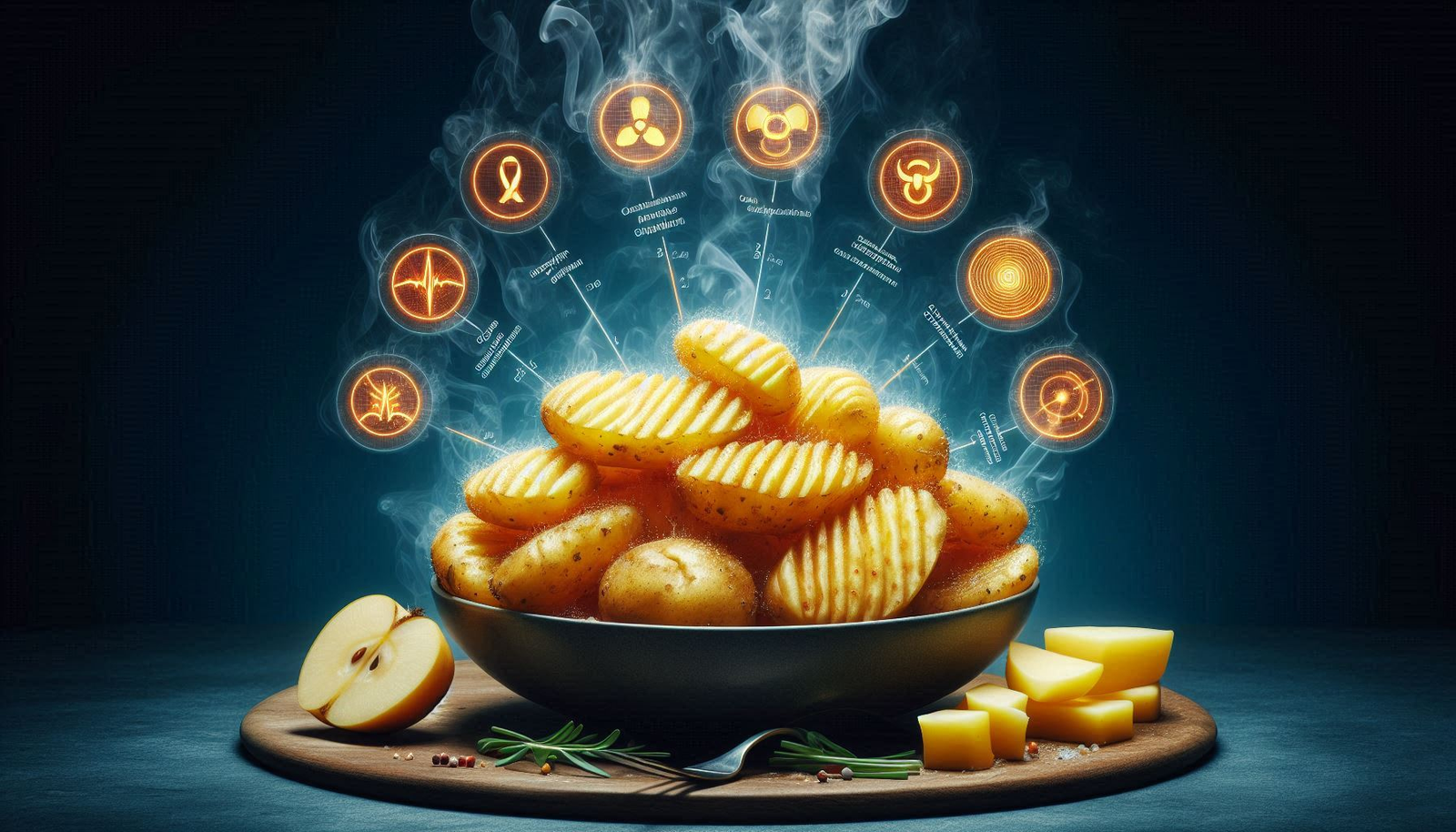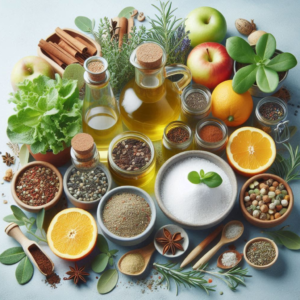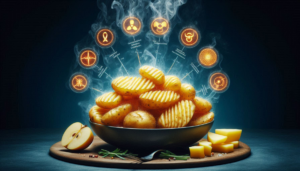“10 Shocking Ways Overcooked Food Is Secretly Ruining Your Health”
Discover the health effects of overcooked food, including nutrient loss and potential risks.
Overcooked Food: Is Your Meal Quietly Harming Your Health?
Table of Contents
- Introduction
- Understanding Overcooked Food
- Health Effects of Overcooking
- Nutrient Loss in Overcooked Foods
- Cooking Tips to Avoid Overcooking
- Food Safety and Overcooking
- Healthy Cooking Alternatives
- Common Overcooking Risks
- Maintaining Food Quality
- Avoiding Cooking Mistakes
- Dietary Impact of Overcooked Food
- Conclusion
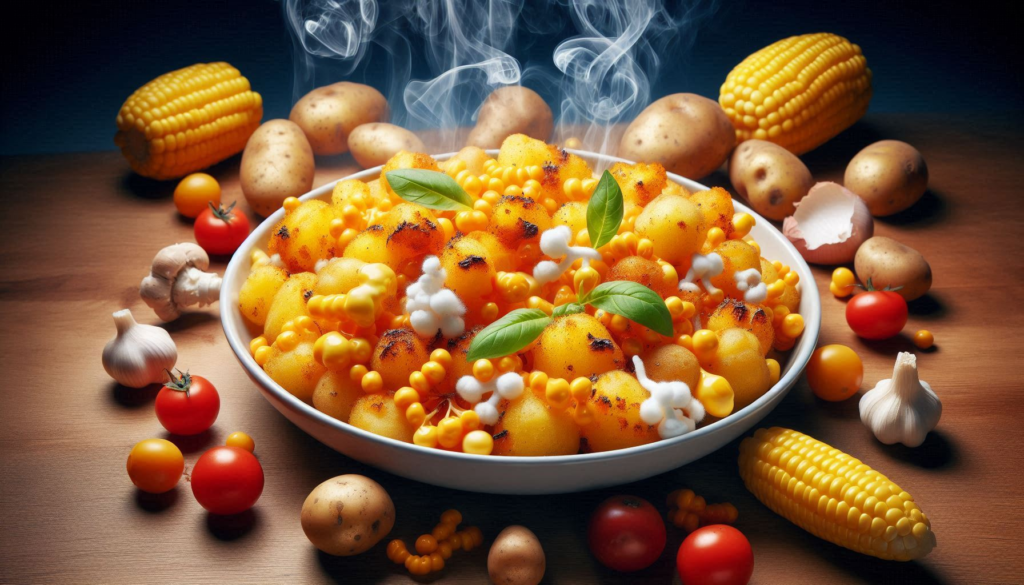
Introduction
We’ve all been there – leaving food on the stove for a bit too long or forgetting about that casserole in the oven. Over cooked food is a common kitchen mishap, but have you ever stopped to consider its impact on your health? In this blog post, we’ll explore the hidden dangers of overcooked food and why it’s crucial to pay attention to your cooking methods.
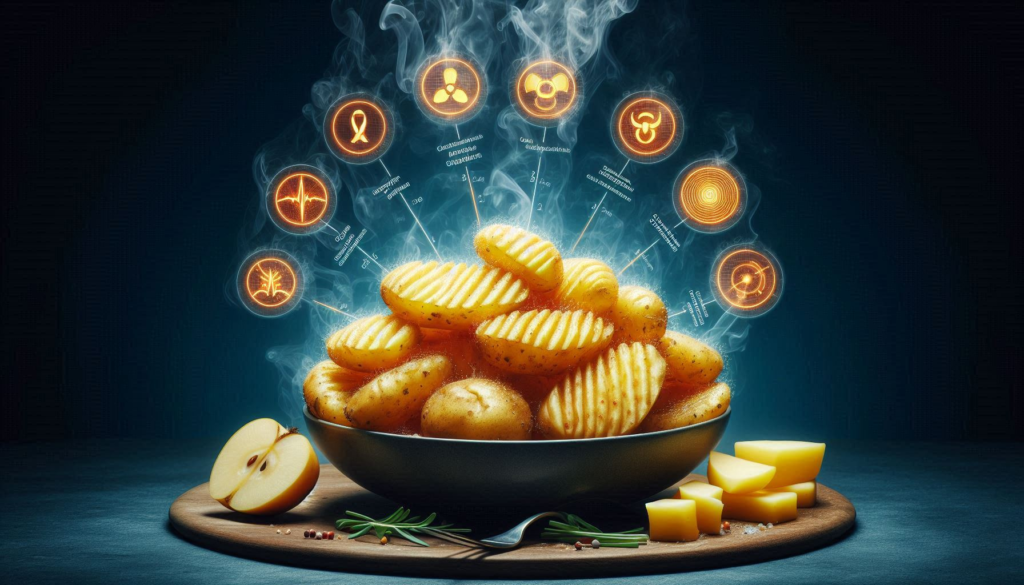
Understanding Overcooked Food
Overcooked food refers to any dish that has been cooked beyond its optimal point. This can happen through various cooking methods, including boiling, frying, baking, or grilling. While some people prefer their food well-done, there’s a fine line between thoroughly cooked and overcooked.
Signs of Overcooked Food:
- Dry or tough texture
- Burnt or charred appearance
- Loss of natural color
- Decreased flavor
Health Effects of Overcooking
The health effects of consuming overcooked food can be significant and often overlooked. Here are some key concerns:
- Formation of harmful compounds: Overcooking, especially at high temperatures, can lead to the formation of potentially harmful substances like acrylamide and heterocyclic amines (HCAs).
- Increased cancer risk: Some studies suggest that regularly consuming overcooked or burnt food may increase the risk of certain cancers. For example, a study published in the Journal of Food Science found a correlation between acrylamide consumption and increased cancer risk.
- Digestive issues: Overcooked food can be harder to digest, potentially leading to gastrointestinal discomfort.
- Reduced nutritional value: Many essential nutrients are heat-sensitive and can be destroyed or diminished through overcooking.
Nutrient Loss in Overcooked Foods
One of the most significant impacts of overcooking is the loss of vital nutrients. Here’s how different nutrients are affected:
- Vitamins: Water-soluble vitamins like vitamin C and B-complex vitamins are particularly vulnerable to heat. For instance, boiling vegetables for too long can cause these vitamins to leach into the cooking water.
- Minerals: While minerals are generally more stable than vitamins, extreme heat can still cause some loss, especially in water-based cooking methods.
- Proteins: Overcooking can denature proteins, making them harder to digest and potentially reducing their nutritional value.
- Antioxidants: Many beneficial plant compounds, such as antioxidants in fruits and vegetables, can be degraded by excessive heat.
Cooking Tips to Avoid Overcooking
To preserve nutrients and avoid the health risks associated with overcooked food, try these cooking tips:
- Use a timer: Set a timer to remind you when your food should be done.
- Monitor internal temperatures: Use a food thermometer to ensure meat is cooked to a safe temperature without overdoing it.
- Opt for shorter cooking times: When possible, choose quick-cooking methods like stir-frying or steaming.
- Don’t multitask: Pay attention to your cooking to avoid distractions that might lead to overcooking.
- Learn proper cooking times: Familiarize yourself with the recommended cooking times for different foods.
Food Safety and Overcooking
While overcooking can have negative health effects, it’s essential to balance this with food safety concerns. Undercooked food, especially meats, can harbor harmful bacteria. The key is to cook food thoroughly without overdoing it.
Safe Internal Temperatures for Meats:
- Poultry: 165°F (74°C)
- Ground meats: 160°F (71°C)
- Beef, pork, lamb, and veal (steaks, roasts, chops): 145°F (63°C) with a 3-minute rest time
For more detailed information on food safety, visit the FDA’s Food Safety Education page.
Healthy Cooking Alternatives
To maintain food quality and nutritional value, consider these healthy cooking alternatives:
- Steaming: Retains nutrients better than boiling and doesn’t require added fats.
- Stir-frying: Quick cooking at high heat preserves nutrients and flavor.
- Grilling: Can be a healthy option when done correctly, but avoid charring.
- Roasting: Enhances flavor without requiring excessive oil or butter.
- Raw preparations: For fruits and vegetables, eating them raw ensures no nutrient loss from cooking.
Common Overcooking Risks
Be aware of these common scenarios that often lead to overcooking:
- Leaving food unattended: Always keep an eye on what you’re cooking.
- Using too high heat: High temperatures can quickly lead to burning and nutrient loss.
- Overcrowding the pan: This can lead to uneven cooking and the need for longer cooking times.
- Relying on visual cues alone: Use multiple methods to determine doneness, including touch and internal temperature.
- Not adjusting for different appliances: Every stove and oven is different, so be prepared to adjust cooking times accordingly.
Maintaining Food Quality
Preserving food quality goes hand in hand with avoiding overcooking. Here are some tips:
- Choose fresh ingredients: Starting with high-quality, fresh foods will yield better results.
- Store foods properly: Proper storage helps maintain quality before cooking.
- Prep ingredients correctly: Uniform cutting ensures even cooking.
- Use appropriate cookware: The right pots and pans can help distribute heat evenly.
- Let meats rest: Allowing meats to rest after cooking helps retain juices and improve texture.
Avoiding Cooking Mistakes
Common cooking mistakes often lead to overcooking. Here’s how to avoid them:
- Not preheating: Always preheat your oven or pan for consistent cooking.
- Overcrowding the pan: Cook in batches if necessary to avoid steaming instead of browning.
- Opening the oven too often: This lets heat escape and can lead to longer cooking times.
- Not using a meat thermometer: Relying on color alone can result in overcooked or unsafe meat.
- Cutting into meat too soon: This can cause juices to escape, leading to dryness.
Dietary Impact of Overcooked Food
The dietary impact of regularly consuming overcooked food can be significant:
- Reduced nutrient intake: Consistently eating overcooked food may lead to nutrient deficiencies over time.
- Altered taste preferences: Overcooked food often has a less appealing taste, which might lead to increased use of salt or sauces to compensate.
- Digestive issues: The reduced digestibility of overcooked food can lead to gastrointestinal discomfort.
- Increased calorie intake: Overcooked vegetables may be less satisfying, potentially leading to overeating.
- Potential long-term health risks: The cumulative effect of consuming harmful compounds formed in overcooked food may contribute to various health issues.
Conclusion
Understanding the risks associated with over cooked food is crucial for maintaining a healthy diet. By being mindful of cooking times, using appropriate methods, and prioritizing food quality, you can ensure that your meals are both safe and nutritious. Remember, the goal is to cook food thoroughly without overdoing it. With practice and attention, you can master the art of cooking foods to perfection, preserving both flavor and nutritional value.
What are your thoughts on overcooked food? Have you noticed any differences in how you feel when eating properly cooked versus overcooked meals? Share your experiences in the comments below, and let’s continue this important conversation about food quality and health!
Read many more articles here
Share this content:
